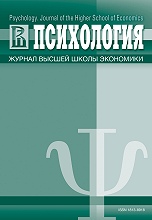Противопоставление и переосмысление естественнонаучного и гуманитарного подходов
Ключевые слова:
наука, тип, подход, стратегия, мышление, реконструкция, гуманитарный подход, естественнонаучный подход, конвергенция, снятие
Аннотация
В статье анализируется ситуация противостояния двух подходов ‒ естественно-научного и гуманитарного и пути преодоления этого противостояния. Характеризуются оба подхода и реконструируются исторические обстоятельства, в которых они появились. Автор выделяет и анализирует три решения, обсуждаемые в настоящее время в научной литературе. Первое решение он называет стратегией конвергенции указанных подходов. Второе решение определяется как стратегия снятия противостояния естественно-научного и гуманитарного подходов. Оно опирается на установку, что наука едина. Третья стратегия авторская. Представление о науке постепенно нащупывается, строится по мере анализа разных типов науки. Кроме того, оказалось, что, с одной стороны, в этих разных типах наук (античной, средневековой, естественной, технической, гуманитарной, социальной и др.) можно выделить инвариантное ядро (своего рода «геном» науки), а с другой ‒ что они как типы различаются структурно. Первая стратегия оценивается автором как формальная, не учитывающая противоположные методологические установки указанных подходов. Недостаток второй он видит в том, что ее сторонники не выявили реальных различий естественных и гуманитарных наук и способов мышления. Третья стратегия – самая сложная, поскольку предполагает анализ становления и функционирования разных типов наук. Но ее реализация позволит истолковать оба подхода как органические и отчасти взаимосвязанные моменты научного исследования и мышления. В рамках подобной стратегии различие естественно-научного и гуманитарного подходов может быть осмыслено, во-первых, как различие форм концептуализации, которые выстраивались в оппозиции друг к другу, во-вторых, как различие характера решаемых проблем, установок исследователей, особенностей научного мышления, областей применения полученных знаний и схем.Скачивания
Данные скачивания пока не доступны.
Литература
1. Архимед. (1962). Квадратура параболы. В кн. Архимед, Сочинения(с. 77-95). М.: Физматгиз.
2. Бахтин, М. (1979). Эстетика словесного творчества. М.: Искусство.
3. Бэкон, Ф. (1935). Новый органон. Л.: Соцэкгиз. Ленинградское отделение.
4. Выготский, Л. С. (1982). Исторический смысл психологического кризиса (методологическое исследование). В кн. Л. С. Выготский, Собрание сочинений(в6 т., т. 1, с. 291-436). М.: Педагогика.
5. Гачев, Г. Д. (1981). О возможном содействии гуманитарных наук развитию естественных. В кн. Методологические проблемы взаимодействия общественных, естественных и технических наук(с. 109-126). М.: Наука.
6. Дильтей, В. (1924). Описательная психология. М.: Русский книжник.
7. Ерасов, Б. С. (1996). Социальная культурология. М.: Аспект-пресс.
8. Киященко, Л. П. [и др.]. (2004). Синергетическая парадигма. Когнитивно-коммуникативные стратегии современного научного познания. М.: Прогресс-Традиция.
9. Киященко, Л., Тищенко, П.(2004). Опыт предельного стратегия «разрешения» парадоксальности в познании. В кн. Вызов познанию: Стратегии развития науки в современном мире (с. 232-258). М.: Наука.
10. Мамчур, Е. А. (2004). Объективность науки и релятивизм: (К дискуссиям в современной эпистемологии). М.: Мысль.
11. Мирзоян, Э. (2004). Единство естествознания как проблема истории и философии науки. В кн. Вызов познанию: Стратегии развития науки в современном мире(с. 86-103). М.: Наука.
12. Москаева, А. С. (1967). Математика и философия. В кн. Проблемы исследования структуры науки(с. 165-173). Новосибирск.
13. Огурцов, А. П., Платонов, В. В. (2004). Образы образования. Западная философия образования. ХХ век. СПб.: Изд-во Русского Христианского гуманитарного университета.
14. Розин, В. М. (1989). Особенности и формирование естественных, технических и гуманитарных наук. Красноярск: Изд-во Красноярского университета.
15. Розин, В. М. (2009). Особенности дискурса и образцы исследования в гуманитарной науке. М.: ЛИБРОКОМ.
16. Розин, В.М. (2011). Введение в схемологию. Схемы в философии, культуре, науке, проектировании. М.: ЛИБРОКОМ.
17. Розин, В.М. (2017а). Природа: Понятие и этапы развития в европейской культуре. М.: ЛЕНАНД.
18. Розин, В. М. (2017б). Психология в фокусе методологии и философии науки. М.: URSS.
19. Федотова, В. Г.(2000). Основные исследовательские программы социально-гуманитарных наук. В кн. В. Г. Федотова, Анархия и порядок. М.: URSS.
20. Фрейд, З. (2005). Толкование сновидений. М./Минск: АСТ/Харвест.
2. Бахтин, М. (1979). Эстетика словесного творчества. М.: Искусство.
3. Бэкон, Ф. (1935). Новый органон. Л.: Соцэкгиз. Ленинградское отделение.
4. Выготский, Л. С. (1982). Исторический смысл психологического кризиса (методологическое исследование). В кн. Л. С. Выготский, Собрание сочинений(в6 т., т. 1, с. 291-436). М.: Педагогика.
5. Гачев, Г. Д. (1981). О возможном содействии гуманитарных наук развитию естественных. В кн. Методологические проблемы взаимодействия общественных, естественных и технических наук(с. 109-126). М.: Наука.
6. Дильтей, В. (1924). Описательная психология. М.: Русский книжник.
7. Ерасов, Б. С. (1996). Социальная культурология. М.: Аспект-пресс.
8. Киященко, Л. П. [и др.]. (2004). Синергетическая парадигма. Когнитивно-коммуникативные стратегии современного научного познания. М.: Прогресс-Традиция.
9. Киященко, Л., Тищенко, П.(2004). Опыт предельного стратегия «разрешения» парадоксальности в познании. В кн. Вызов познанию: Стратегии развития науки в современном мире (с. 232-258). М.: Наука.
10. Мамчур, Е. А. (2004). Объективность науки и релятивизм: (К дискуссиям в современной эпистемологии). М.: Мысль.
11. Мирзоян, Э. (2004). Единство естествознания как проблема истории и философии науки. В кн. Вызов познанию: Стратегии развития науки в современном мире(с. 86-103). М.: Наука.
12. Москаева, А. С. (1967). Математика и философия. В кн. Проблемы исследования структуры науки(с. 165-173). Новосибирск.
13. Огурцов, А. П., Платонов, В. В. (2004). Образы образования. Западная философия образования. ХХ век. СПб.: Изд-во Русского Христианского гуманитарного университета.
14. Розин, В. М. (1989). Особенности и формирование естественных, технических и гуманитарных наук. Красноярск: Изд-во Красноярского университета.
15. Розин, В. М. (2009). Особенности дискурса и образцы исследования в гуманитарной науке. М.: ЛИБРОКОМ.
16. Розин, В.М. (2011). Введение в схемологию. Схемы в философии, культуре, науке, проектировании. М.: ЛИБРОКОМ.
17. Розин, В.М. (2017а). Природа: Понятие и этапы развития в европейской культуре. М.: ЛЕНАНД.
18. Розин, В. М. (2017б). Психология в фокусе методологии и философии науки. М.: URSS.
19. Федотова, В. Г.(2000). Основные исследовательские программы социально-гуманитарных наук. В кн. В. Г. Федотова, Анархия и порядок. М.: URSS.
20. Фрейд, З. (2005). Толкование сновидений. М./Минск: АСТ/Харвест.
Опубликован
2018-11-06
Как цитировать
РозинВ. М. (2018). Противопоставление и переосмысление естественнонаучного и гуманитарного подходов. Психология. Журнал Высшей школы экономики, 15(2), 291-306. https://doi.org/10.17323/1813-8918-2018-2-291-306
Выпуск
Раздел
Статьи выпуска





